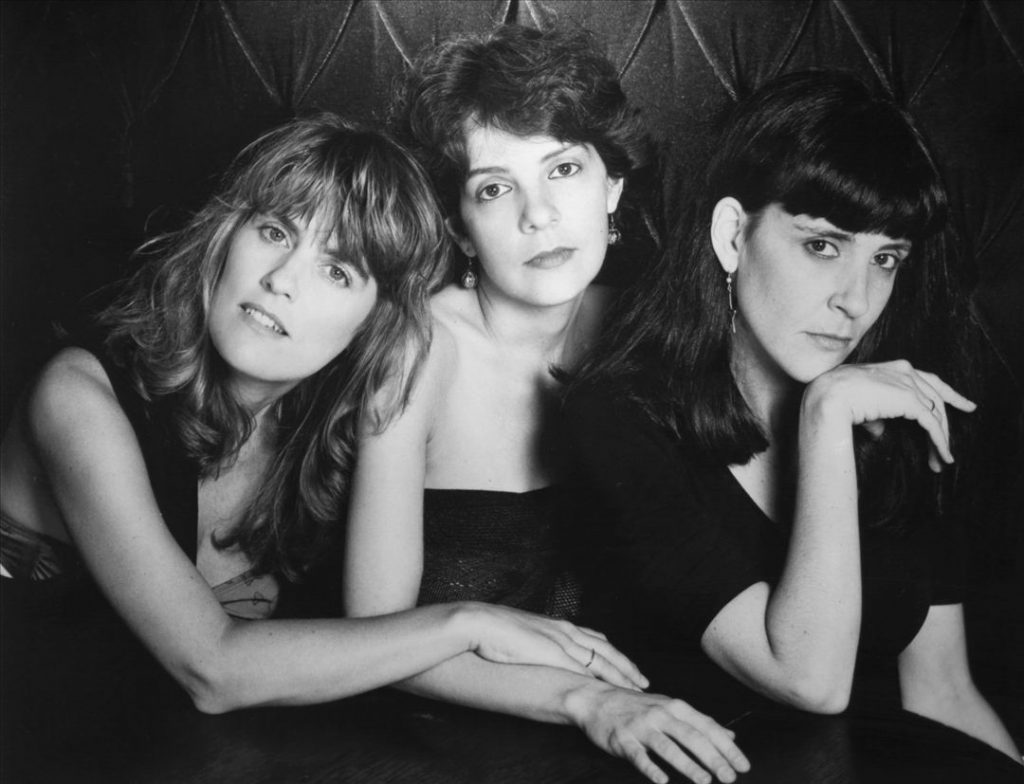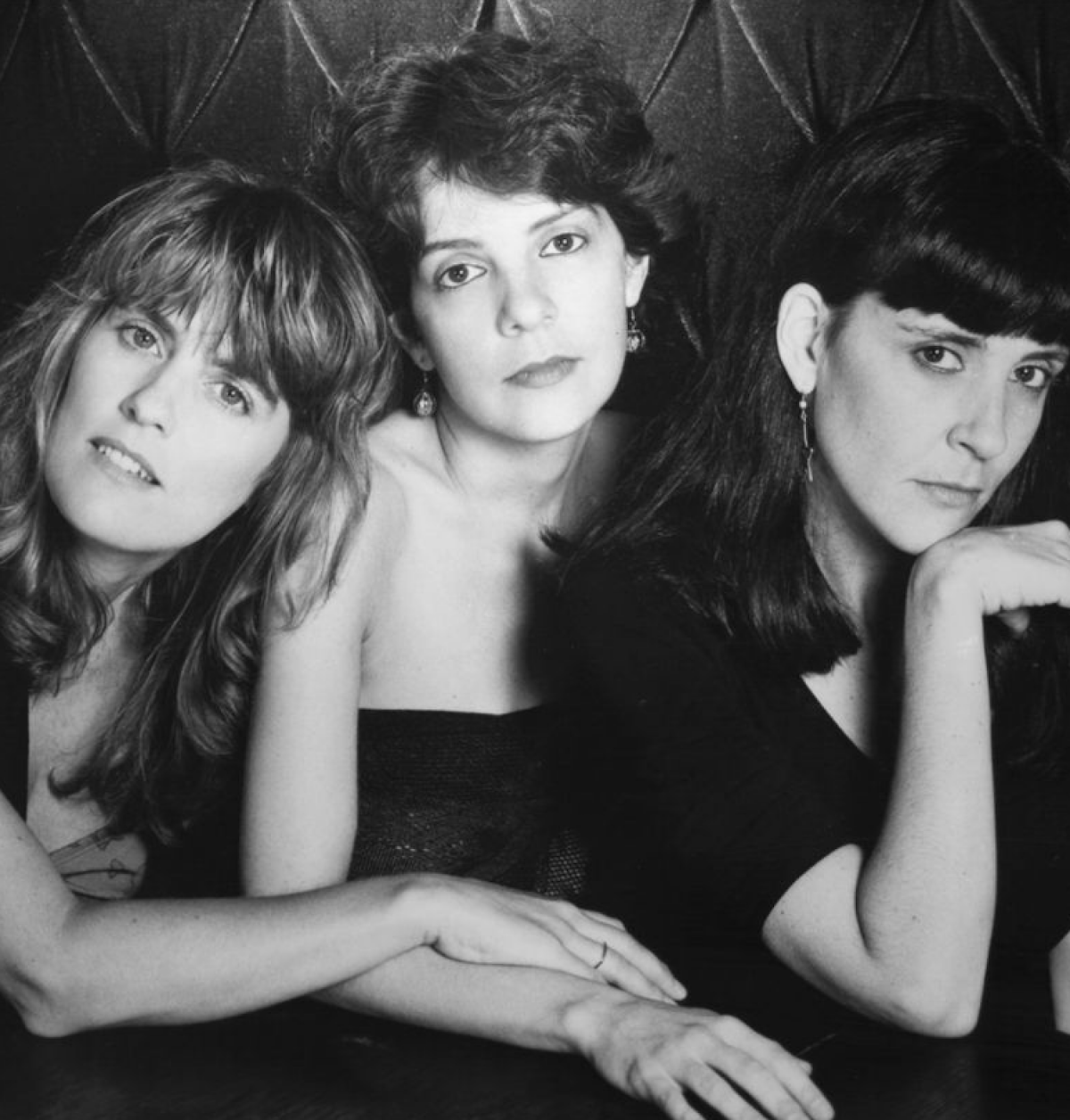In music, a flat five is a passing chord that harmonizes well with almost any sound. The singers in Chicago’s Flat Five—Kelly Hogan, Nora O’Connor, Scott Ligon, Casey McDonough and Alex Hall—are as versatile as the name of their group implies. They’re all well-known songwriters, musicians and side-persons in their own right, but when they sing as the Flat Five, they touch on something transcendent. Their complex, intertwining harmonies bring to mind the shimmering sounds of the Four Freshmen, Beach Boys, Lambert, Hendricks And Ross, Harry Nilsson and the Everly Brothers—singers who could create breathtaking emotional effects using nothing but their voices. The Flat Five will be guest editing magnetmagazine.com all week. Read our brand-new feature with them.

O’Connor: Urbana, Ill., 1987: I was away at Southern Illinois University, and my boyfriend at the time was two hours north at the University of Illinois. We were competitive mix-tape makers. His were usually better, but mine a close second. That’s when I first heard “Want Not” by the Roches (and “Bobby Brown” by Frank Zappa—what a weirdo … ) I loved my Walkman in college, and listened to a ton of Beatles tapes. Instruments bouncing back and forth between the left and right side of my brain. But the extreme panning of vocals on “Want Not” by the Roches made my head spin with glee. I’ve been chasing that level of panning on every record I’ve made since. It was the beginning of what would be a lifelong commitment to the music of the Roches.
New York City 2009: It was one of the very first times I left my budding family to tour. Back then, when the boys were little, I had to turn down gigs and touring opportunities. But there are certain people I always say yes to. Neko Case is one of them. I love the shit out of that lady! It was the perfect tour scenario, less than a week away from the kiddos. I had sung on a few tunes on Neko Case’s Middle Cyclone record. She graciously asked me to do a few shows with her and the band right around the record’s release. One show being David Letterman.
I wasn’t the only one that said yes. We were to sing “This Tornado Loves You” on the show, and I was beyond thrilled when I found out that Rachel Flotard (Visqueen’s front woman and an all around funny-as-shit super badass) and one of my favorite singer/songwriters, Lucy Wainwright Roche, would be back-up singers as well. All of us put sprinkles of vocals on Neko’s record that year. Kelly Hogan (who I’m convinced is maybe a singing polygamist because she has been Neko’s and my long-time singing wife) was the fearless leader of our backup singing pack. Hogan’s been singing live and on Neko’s records for many years now.
(Did I mention that Drew Barrymore was on the show with us? She flew in and out of the studio, and we only got whiff of her fairy dust. But hey, we were in the same building at the same time!! All I heard was “Drew needs a straw!”)
It just so happened that Lucy Wainwright Roche was also opening for the Indigo Girls in the city that night. I’m a blubbering fan of Amy and Emily, and I was excited to see Lucy do her thing, since I was really diving into Lucy’s first two records at the time.
Little did I know that when Lucy put us on the guest list, I wound up sitting in the VIP section with her mother and two aunts. Now, her mother is Suzzy Roche, and her aunts are Maggie and Terre: the Roches!!! I was sitting at a table with the Roches watching the Indigo Girls. It was too much. Too much, I say. I tried to keep it together, but it was very difficult. The Roches are my favorite family group of all time. Their melodies, harmonies and sense of humor hits me in all the right spots. I’m in awe of their guitar playing too. You can just tell they’re doing it right.
Near the end of the Indigo Girls’ set that night, the Roches got onstage and sang “The Hammond Song”—and, of course, it was pure gold. I tried so hard to be cool, and they were just so loving to me. It was a night I’ll remember forever.
Recently, Maggie Roche died at the age of 65 after a long battle with breast cancer. She was the main songwriter of the group and will be missed so much by all of her fans.
I’ve been reading a lot of tributes to Maggie, and this quote stands out: “‘It’s very important to collaborate successfully,’ she told me. ‘It’s rewarding every time you can manage it. I hate to use the word ‘share,’ because it’s so overused, but whenever you can share anything with someone else and not feel like you got ripped off, it’s very exhilarating. That’s what I get out of recording and performing. I hope that’s what other people get out of it.’” (from Maggie Roche: The Hidden Heart Of The Roches By Geoffrey Himes)
Since that magic New York City night, I’ve had the opportunity to become closer with Lucy Wainwright Roche (I’m always singing her songs at my solo shows!) and have gotten to know Suzzy a little bit. After Maggie’s passing, Suzzy described her sister as “smart, wickedly funny and authentic—not a false bone in her body—a brilliant songwriter, with a distinct unique perspective, all heart and soul.”
Hogan: From the time I first saw them on SNL in 1979 (while eating frozen coconut cream pie, babysitting in a suburban cul de sac in Douglasville, Ga.), the Roches meant everything to me—they were brilliant and playful, but also had those crazy blue-steel-perfect harmonies. I was blow away by the seemingly simple presentation of what I already knew (from singing in choir) was intensely complex and difficult music to pull off.
Later that night, as I walked home alone down silent streets, I was humming “The Hammond Song,” and my head was filled with new musical possibilities. Thank you and farewell, Maggie Roche. You and your sisters opened my ears.
P.S. Yep, The Roches are harmony geniuses—but really the secret harder thing to do is unison singing, and they are the top, top, top of that mountain. Assassins of unison. Mad respect.






